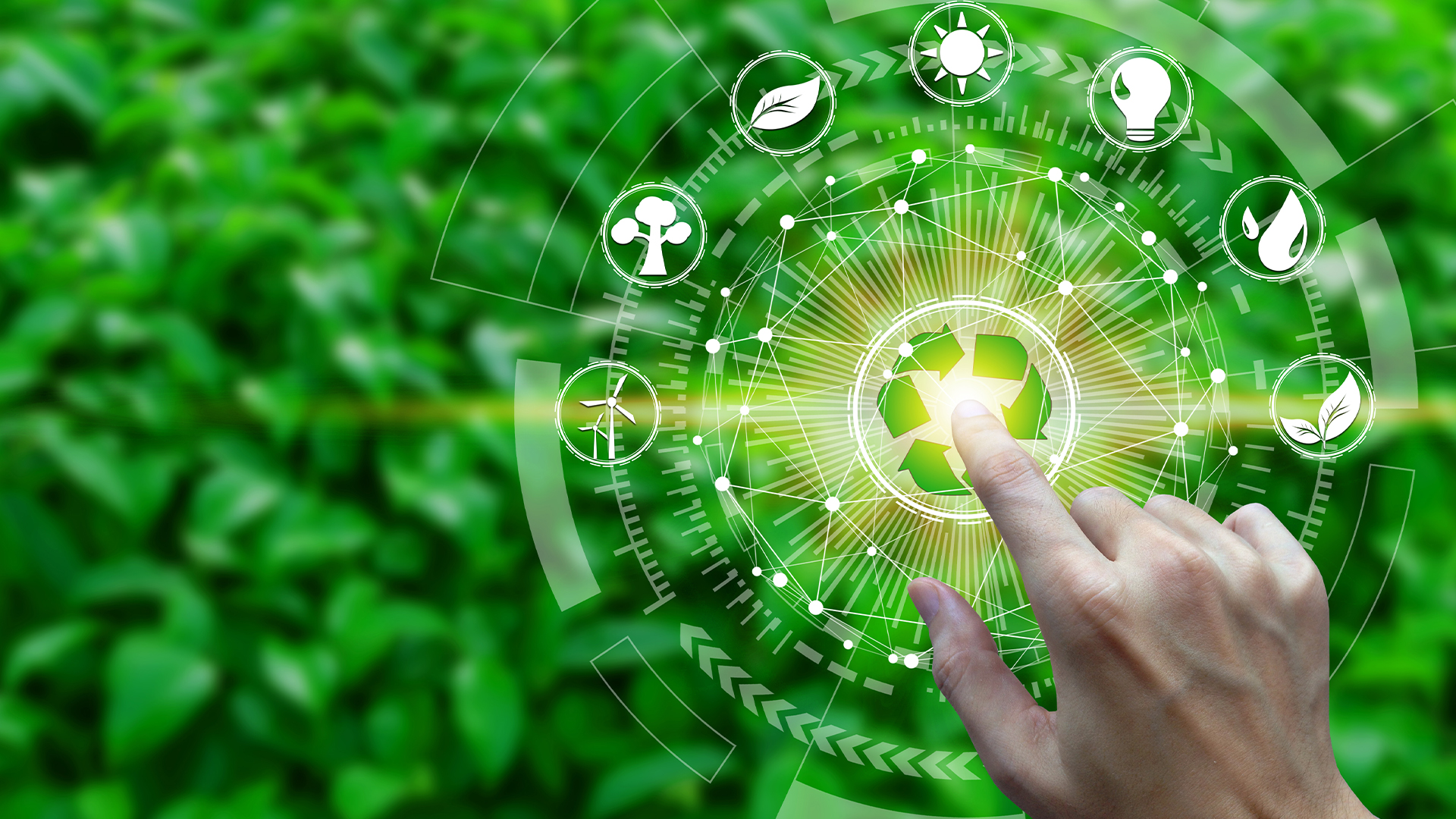The Biden Administration recently awarded what could amount to over US$7bn to seven regional clean hydrogen power hubs (so-called H2Hubs) across the country. The funds will come from the Bipartisan Infrastructure Law (BIL) that was passed in November 2021, and the White House expects the public investment in these hubs to "catalyze more than US$40bn in private investment" in addition to the federal grants. Green hydrogen projects project to be the largest beneficiaries of the awards, accounting for roughly two-thirds of the funds, but the selected projects also include blue hydrogen production, as well as infrastructure for the storage and distribution of clean hydrogen.
The recently announced funds will be administered by the US Department of Energy (DOE) through its Office of Clean Energy Demonstration and pair with tax incentives under the Inflation Reduction Act (IRA)—including the so-called 45V clean hydrogen production credit—to spur the growth of commercial-scale clean hydrogen in the United States.
Together with the US Environmental Protection Agency's (EPA) May 23, 2023, electric power plant greenhouse gas rule proposal to phase in hydrogen co-firing (Power Plant GHG Rule) and state incentives such as California's Low Carbon Fuel Standard (LCFS) program, these incentives collectively create attractive opportunities for businesses to benefit from the Biden Administration's commitment to build the infrastructure needed for the production, processing, delivery, storage and end-use of clean hydrogen.
In pursuing these opportunities, however, businesses should be aware that the announced funds and projects related to them carry elevated enforcement risks on several fronts and take precautions to mitigate these risks. Expect the funds to be carefully monitored for evidence of potential bid-rigging or related collusive conduct as part of the Department of Justice's (DOJ) longstanding commitment to police procurement fraud. Additionally, the EPA and state agencies tasked with administering clean fuels are likely to enhance their scrutiny of environmental regulatory and permitting programs critical to developing and operating clean hydrogen production, distribution, as well as related fueling and power generation infrastructure.
Antitrust and competition disks
The use of federal funds—even in the form of grants to the selected non-profit H2Hubs—means that DOJ's Antitrust Division and DOE's Inspector General will have jurisdiction over and closely monitor these funds for potential collusive bidding or other anticompetitive conduct.
In 2019, DOJ launched the Procurement Collusion Strike Force (PCSF), an interagency effort to coordinate a national response to detect and deter antitrust crimes and related offenses that impact procurement, grant and program funding at all levels of government. Since its creation, the PCSF has become an increasingly larger focus of the Antitrust Division's criminal enforcement efforts, with over 115 criminal investigations opened.
The PCSF has expanded its relationships with law enforcement agencies over time, including adding DOE as a national law enforcement partner in November 2022, specifically noting DOE's role in overseeing funds under the flagship legislation of Bidenomics, including the BIL and IRA.
In addition to growing its ranks at the agency level, the PCSF has both assumed a broader mandate in terms of the conduct it has investigated and obtained more severe penalties over time. In a recent PCSF prosecution, for instance, the DOJ obtained criminal penalties that included individual sentences of 45, 49 and 78 months against individuals convicted for their roles in a bid-rigging and bribery scheme involving California Department of Transportation contracts. PCSF investigators also have shown their willingness to charge offenses such as fraud (including with relation to "set aside" programs) and bribery, either alongside or in place of antitrust counts, breaking away from any previous or historical reticence by DOJ's Antitrust Division to venture outside the bounds of federal antitrust laws.
PCSF leadership recently confirmed its focus on infrastructure projects involving public funds, in addition to continuing to build out its enforcement architecture by adding an additional manager to oversee investigations involving domestic federal spending. The PCSF also has committed its resources to develop more sophisticated data analytics tools to better detect potential anomalies that could signal anticompetitive conduct impacting procurement spending.
The funds that will flow to the H2Hubs are the types of public expenditures that motivated the creation of the PCSF, and there are clear signs that the PCSF has been growing and preparing to investigate any potential collusion involving BIL and IRA funds since those laws were passed. Combined with a more mature and confident PCSF, spending on and through the H2Hubs is likely to be closely watched by federal law enforcement for any sign of collusive conduct.
Environmental enforcement risks
Like the Biden Administration's more recent H2Hubs grant announcement and 45V clean hydrogen production tax credit, existing federal and state clean fuels programs both provide incentives and create enforcement risks for clean hydrogen project development and facility operation.
The California Air Resources Board's (CARB) LCFS program, for example, is an increasingly popular source of funding for qualified clean transportation fuel projects through credits that can be sold to regulated entities marketing fuels with carbon intensity (CI) levels above the LCFS standard. Approved clean fuel pathways generating LCFS credits, however, are subject to verification audits and potential enforcement for non-compliance or misrepresentation. Participants in EPA's Renewable Fuel Standard (RFS) program also are subject to enforcement if found to be in violation of federal regulations.
Development and operation of energy infrastructure facilities also may be subject to complex state and federal regulatory and permitting requirements. While environmental enforcement authorities often seek civil penalties for less serious violations, federal and state agencies can pursue criminal enforcement under appropriate circumstances. EPA refers the most significant matters to DOJ Environmental and Natural Resources Division for prosecution.
Adding to the heightened enforcement risk is the recent increase in inter-agency collaboration regarding these programs. EPA is actively coordinating its proposed Power Plant GHG Rule hydrogen provisions with the Department of the Treasury's (Treasury) 45V tax credit guidance, for example, and DOE has closely consulted with Treasury on the contours of the anticipated 45V qualification guidelines.
Finally, an additional layer of risk is created from the many environmental statutes that include so-called "bounty-hunter" provisions authorizing private-party enforcement. Several environmental NGOs have become adept at employing these citizen suit provisions to disrupt projects or facilities by alleging that they might adversely impact human health or the environment and seeking costly settlements and attorney's fees from targeted companies. These bounty hunters also may seek to spur government investigation and enforcement of alleged violations.
Enforcement risk mitigation
Companies pursuing opportunities arising from the H2Hubs program or other federal or state clean fuels incentive programs should take simple steps to avoid potentially costly allegations of misconduct relating to the funds, or their use in developing and operating hydrogen or other clean fuels facilities. These steps can include:
- Ensuring that bid teams for any H2Hubs-related projects understand the gravity of antitrust, environmental and related violations;
- Establishing compliance programs that train individuals at all levels to identify and report potential red flags of collusion and know how to respond to invitations to collude;
- Building robust environmental measures into compliance programs and implementing due diligence with respect to the environmental regulatory aspects of anticipated projects;
- Implementing internal systems that allow for the quick reporting to legal and compliance professionals of any problematic conduct. The United States has an antitrust leniency program that requires fast action and self-reporting to obtain maximum benefits in the event of a violation, and EPA's voluntary disclosure policy similarly affords the potential for discretion to impose reduced penalties or even to refrain from enforcing under defined circumstances;
- Applying greater scrutiny to any proposals for joint bidding or teaming arrangements; and
- Engaging qualified technical consultants and legal counsel to advise on proposed projects or transactions, and considering the use of more sophisticated data analytics to alert companies if any bidding anomalies are detected.





